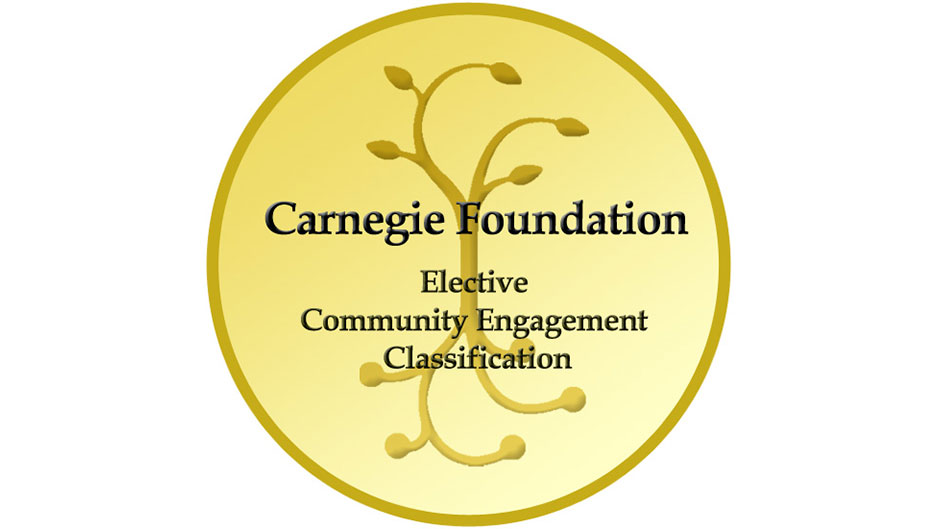The University of Miami has been selected to receive the 2015 Community Engagement Classification from the
Carnegie Foundation for the Advancement of Teaching
. As a first-time recipient of the classification, UM joins a growing list of more than 360 United States institutions proven to demonstrate practices of community engagement through mission, culture, leadership, resources, and practices.
“I am delighted that the Carnegie Foundation has recognized the University of Miami, our
Office of Civic and Community Engagement
, and its director, Dr. Robin Bachin, for our collective commitment to community engagement,” said Thomas J. LeBlanc, executive vice president and provost. “We owe our community and our students the opportunity to learn and grow from the teaching and research of our faculty, and our commitment to that mission has shaped our community engagement initiatives throughout our history. This important recognition from one of the leading voices for higher education is both welcome and well deserved.”
At UM, the Office of Civic and Community Engagement (CCE) actively promotes its mission of engaged scholarship in which academic service-learning meets community-based research. CCE works to enhance University and community collaboration by engaging the University’s academic resources in the enrichment of civic and community life in local, national, and global communities.
“The University of Miami is proud to be recognized by the Carnegie Foundation,” said William Green, UM’s senior vice provost and dean of undergraduate education. “Civic and community engagement are fundamental elements of our educational purpose, and this classification affirms the quality and consequence of our work in this area. Congratulations are due to Assistant Provost Robin Bachin for her leadership in our reaching this goal and to all the faculty and staff educators who make our programs real and effective.”
CCE initiatives, including the Focus on Affordable Housing, the Engaged Faculty Fellows Program, and the Civic Engagement High School Partnership, promote connections between classroom and community and allow for hands-on, experiential education that develops and translates academic knowledge and critical thinking into community engagement and civic responsibility.
“We are thrilled that the hard work we’ve done over the last few years to infuse a culture of engagement at UM is being recognized by the Carnegie Foundation,” said Bachin, assistant provost for civic and community engagement. “Our own innovative programs have created greater opportunities for UM students and faculty to participate in community-based learning experiences across disciplines.”
Colleges and universities with an institutional focus on community engagement were invited to apply for the Carnegie Foundation classification, first offered in 2006 as part of an extensive restructuring of The Carnegie Classification of Institutions of Higher Education. The elective classification allows institutions to participate voluntarily by submitting materials describing the nature and extent of their engagement with the community, local or beyond.
“The importance of this elective classification is borne out by the response of so many campuses that have demonstrated their deep engagement with local, regional, national, and global communities,” said John Saltmarsh, director of the New England Resource Center for Higher Education (NERCHE). “These are campuses that are improving teaching and learning, producing research that makes a difference in communities, and revitalizing their civic and academic missions.”
Through community engagement, institutions of higher education collaborate with their larger communities to work toward a mutually beneficial exchange of knowledge and resources. In bringing together university knowledge and resources and those of the public and private sectors, it allows for enriched scholarship, research, and creative activity, with the ultimate goal of preparing educated, engaged citizens who demonstrate democratic values and a strong sense of civic responsibility.
The Carnegie Foundation for the Advancement of Teaching joins scholars, practitioners, and designers in new ways to solve problems of educational practice. Through the work of the Carnegie Commission on Higher Education, the foundation developed the first typology of American colleges and universities in 1970 as a research tool to describe and represent the diversity of U.S. higher education. The Carnegie Classification of Institutions of Higher Education is used for a wide range of purposes by academic researchers, institutional personnel, policymakers, and others.
The University’s classification is valid until 2025. Among first-time recipients of the classification, 47 are public institutions and 36 are private. They represent campuses in 33 states and U.S. territories. A full listing of the institutions that hold the Community Engagement Classification can be found on

